PEOPLE
WHY I CONTINUE TO SERVE
14 Oct 2019
Like many male Singaporeans, he served NS when he was 19. Thirty years later, he continues to defend the nation under the Reservist on Voluntary Extended Reserve Service scheme. Meet LTC (NS) Christopher Tan.
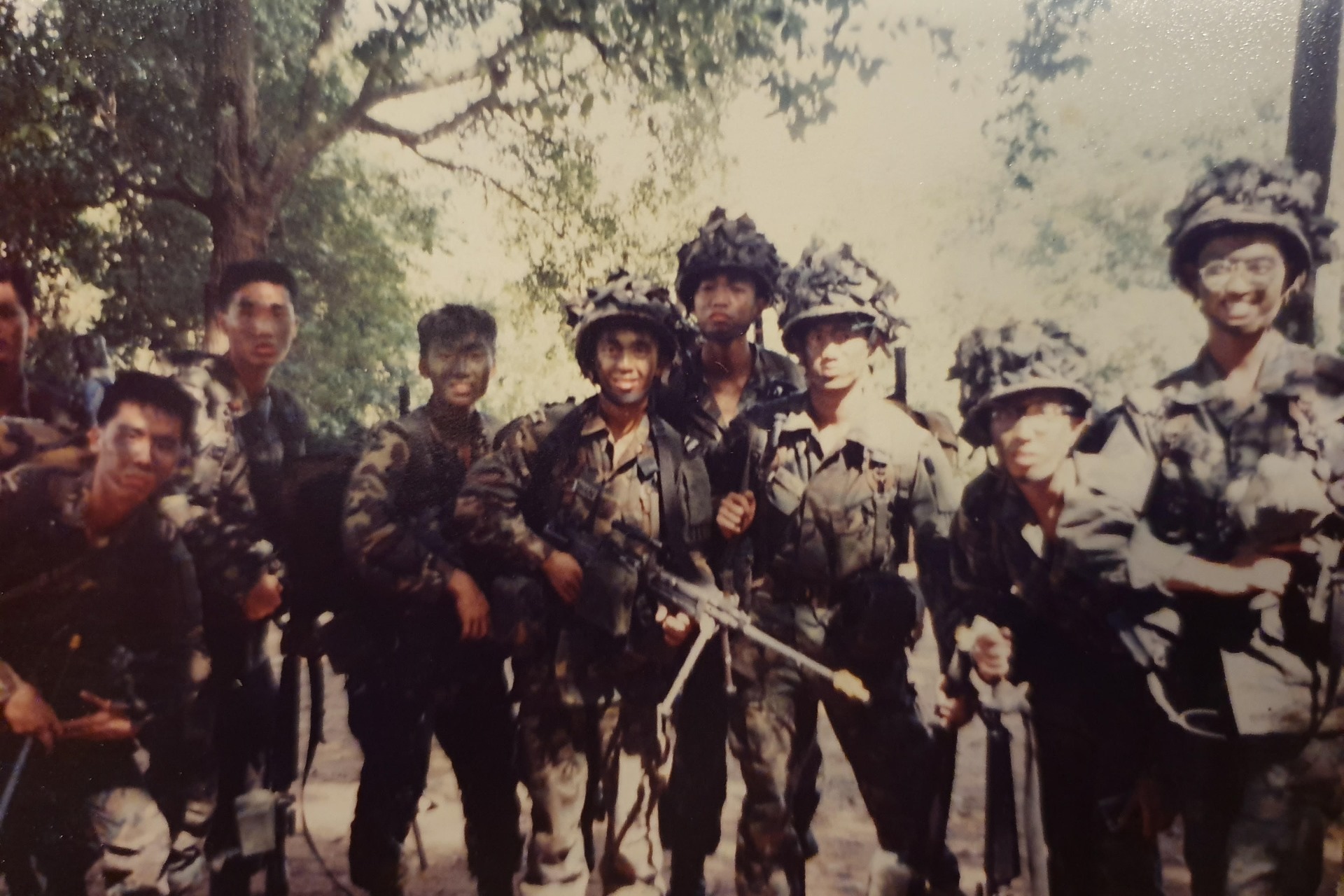
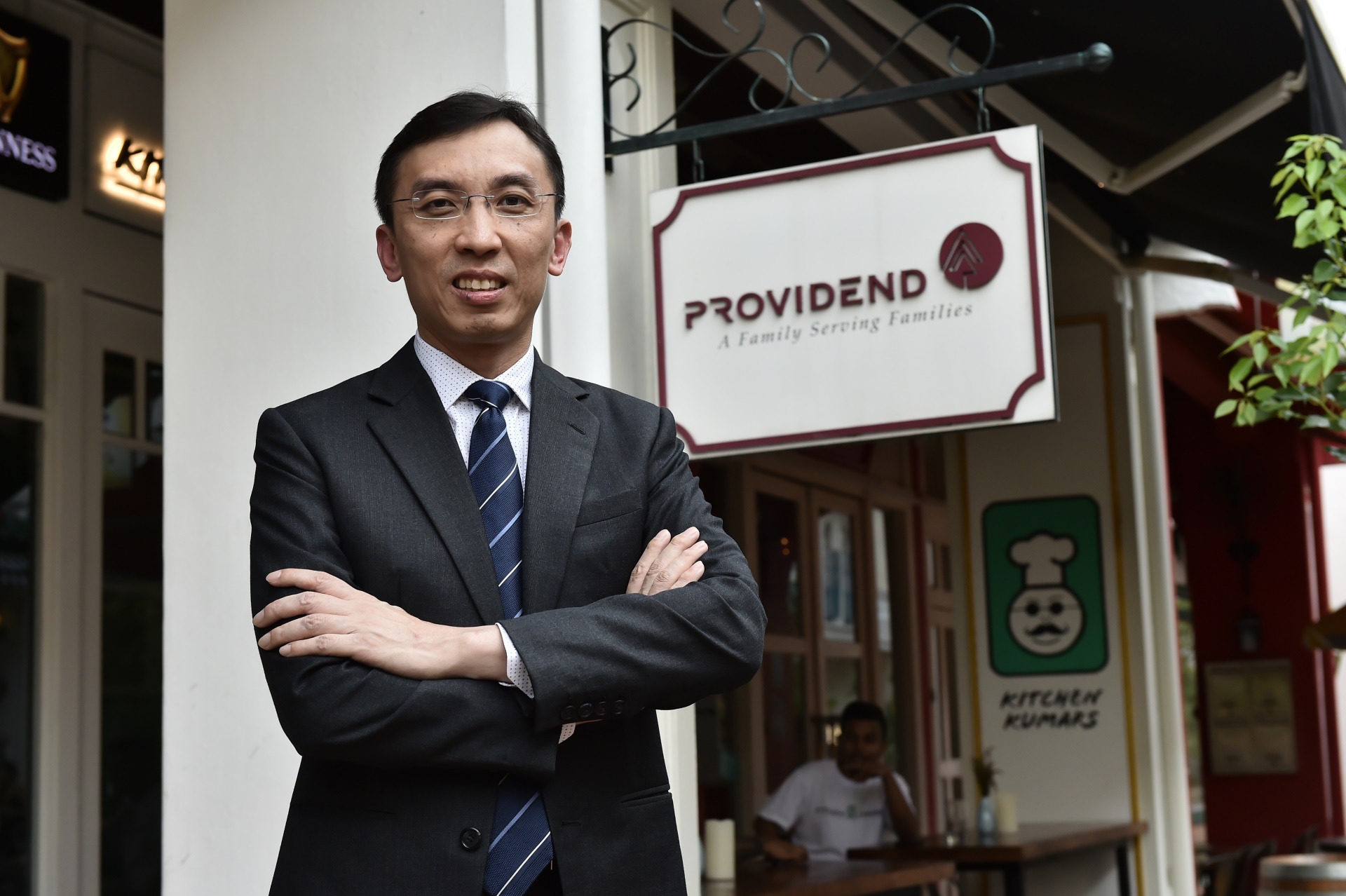
Two things that are close to his heart: the military and helping others with their personal finances.
Lieutenant Colonel (LTC) (NS) Tan, 49, is the founder and chief executive officer of Providend – Singapore’s first financial advisory firm which provides services for a fee instead of commissions.
He is a former member of the Central Provident Fund Advisory Panel that studied ways to enhance the national savings scheme.
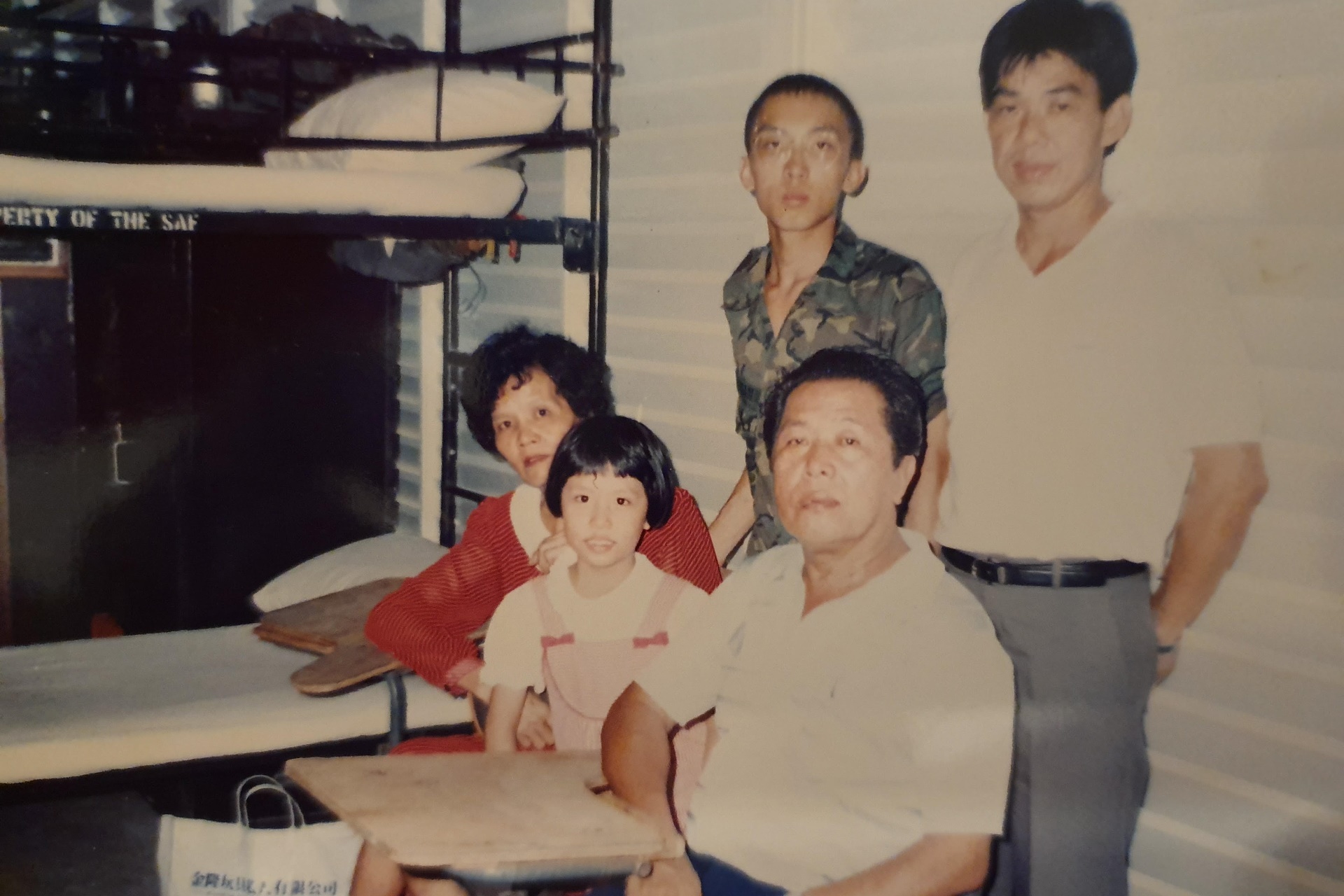
In his younger days, money was tight in the family. His dad was a bus driver, mum a housewife, and they had to support him and his three sisters.
He wanted to start working (and earning) earlier, so he signed on during National Service (NS) when he was a platoon commander in 4th Battalion, Singapore Infantry Regiment.
"I enjoyed my life as a platoon commander – being on the ground with my men everywhere, leading them on missions. That's one reason why I signed on," said LTC (NS) Tan, a Sword of Merit recipient for his officer cadet course.
He left the Singapore Armed Forces in 1996, but has continued serving as a citizen soldier since.
How to set yourself up for financial success during NS
As a personal finance expert and long-time citizen soldier, LTC (NS) Tan is probably the best person to give financial and life advice for young Full-time National Servicemen.
Here's what he has to say:
When my son did his NS with the Singapore Police Force as a Sergeant more than a year ago, he was given a monthly allowance of about $1,200, including risk and food allowance. He would save about $800 each month.
After setting aside an emergency fund, he invested the rest of his savings by regularly putting a small sum of money into a monthly investment plan.
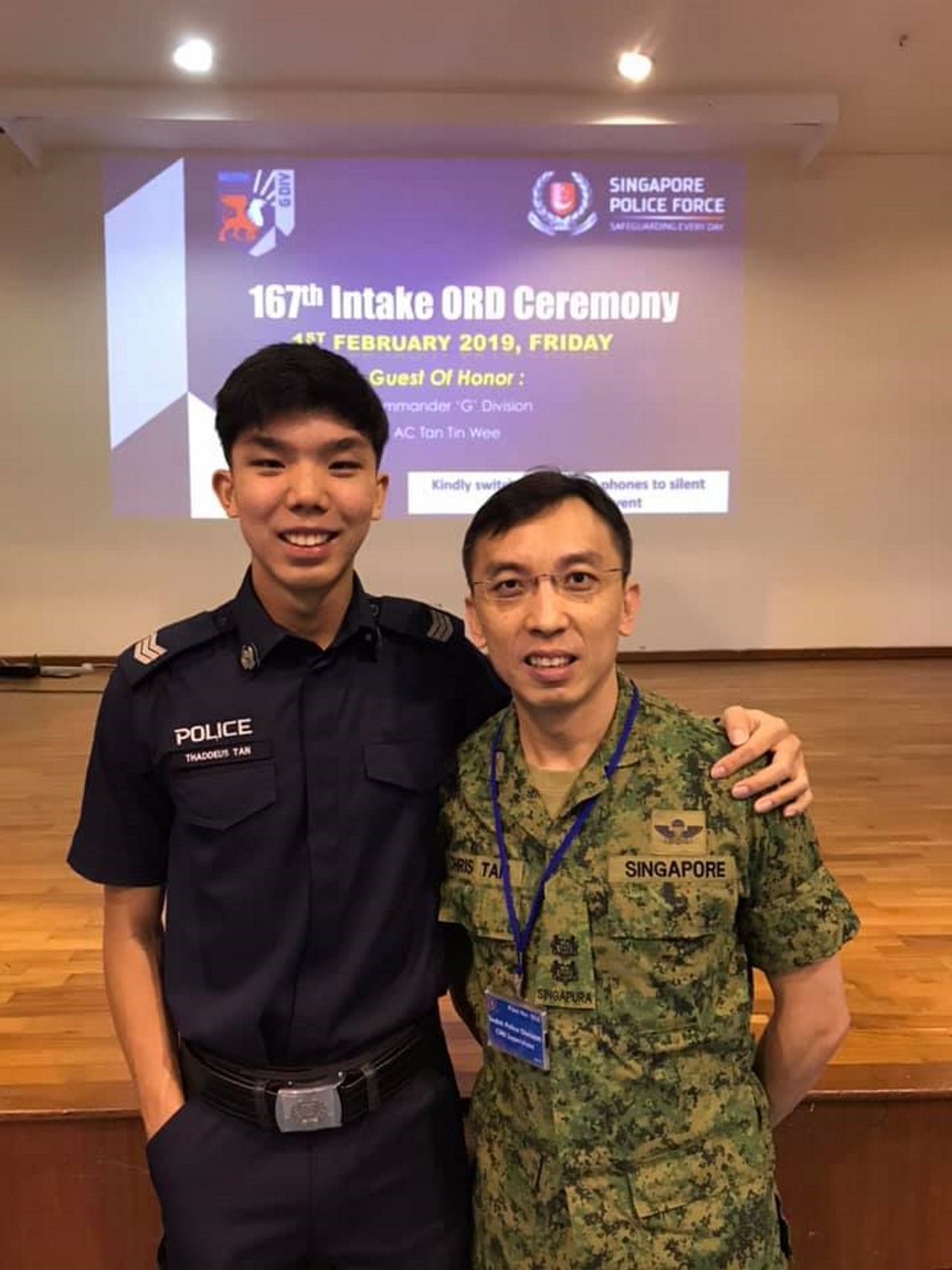
Today, despite his university studies, he continues to save and invest. I hope that he will continue the habits of budgeting, saving and investing when he starts working.
The reason I am sharing this story is because I want young NSFs to realise that NS is the best time to build a solid financial foundation for yourself.
This is the period of your life when you can save a substantial sum of money and develop good financial habits, just as my son had done.
You might be asking: What if I want to get rich fast? Should I dabble in high-risk investments?
Unfortunately, other than going to the casino – which is a quick way to financial ruin – there is no shortcut.
Know the real purpose of investing
Many people have the impression that investments can make you rich, but the truth is few people become rich through investing – most wealthy people first become rich by earning a good income through their work or business.
The real purpose of investing is not to help you become rich – but to help you stay rich by preserving and growing the value of your money beyond inflation.
Keep good financial habits
If you earn a high income, your chances of becoming wealthy are naturally higher – provided you manage your expenses. You can earn a lot but also spend a lot at the same time; this is why good financial habits like budgeting and saving are important.
Follow your passion
Then you may ask: What should I do to earn a good income? My advice is to do what you like and what you are good at.
When my son was pondering what to study in university, he asked me which industry would allow him to make a lot of money. I said: "The hottest industry today is tech but do you like it?"
His answer was no. So I advised him: "If you don't like it, you are likely going to hate it and not do well (when you actually work in that industry). I would rather that you choose something that you like and can excel in."
There is a Chinese saying that goes, 行行出状元 (Every profession produces its own champions). You can be in a sunset industry, but if you are good at your job and you like it, you will do well. So do something that you are passionate about.
If you are clueless about what's your passion, find something that is close to what you like and are good at. It's only a first degree; many people end up working in a field that is different from what they studied.
Focus on personal development
What's more important is the desire to improve yourself. NS is a great time for your personal development: you will go through hardship, be challenged to do things that you never knew you could accomplish and, in the process, come out a better person.
It's surreal to think that, not long ago, my son was still studying for his A levels. The next moment, he was on the streets of Geylang, chasing after criminals and raiding illegal gambling dens. I was proud to serve alongside him, albeit in different uniforms.
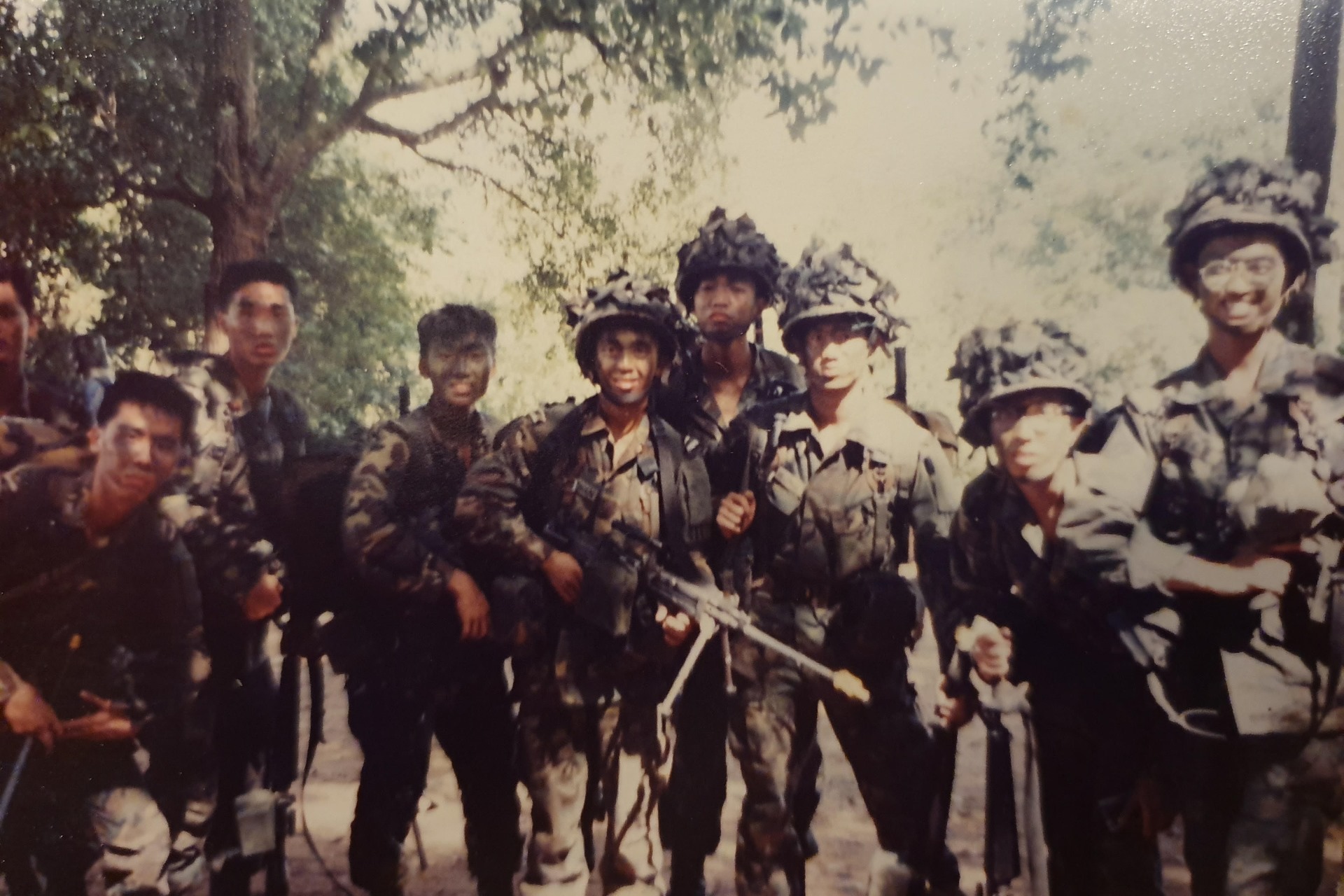
For myself, the leadership training that I received from NS has helped me in my current role as a chief executive officer.
For example, in the army, commanders don’t eat before the men; we are on the ground, dirtying our hands with our men, caring for them more than for ourselves. In a similar vein, after a company event, I will clear the rubbish and clean up the office with my staff. There’s no such things as bosses going home first.
I am responsible for the morale of my staff, their career development, their well-being and more. This is servant leadership, something which I picked up during NS.
In a nutshell:
- Build up an emergency fund of at least three months of living expenses
- Park it away in a safe instrument like the Singapore Saving Bonds which offers higher interest than a regular savings account
- With that peace of mind, start investing the rest of your money through a regular investment plan
- Earn a good income by doing what you are passionate about
- Constantly improve yourself
ALSO READ IN PEOPLE

When two hearts set sail together
13 Feb 2026
Naval engineers ME2 Gary Lim and ME2 Audrey Ho share how they navigate love, military service, and (soon) parenthood.

I’ve always got your back
11 Feb 2026
She’s an Army officer, and he’s the (NS)man supporting her dreams. CPT Koh Xinci and 3SG (NS) Nitro Chan share their love story with us – including their unique wedding!

He’s an NSF Commando & medal-winning fencer
28 Jan 2026
His team won gold at the SEA Games 2025, and he hopes to represent Singapore in more competitions to come. Meet fencer CPL Samuel Elijah Robson, who is serving as a Commando during his full-time NS.


